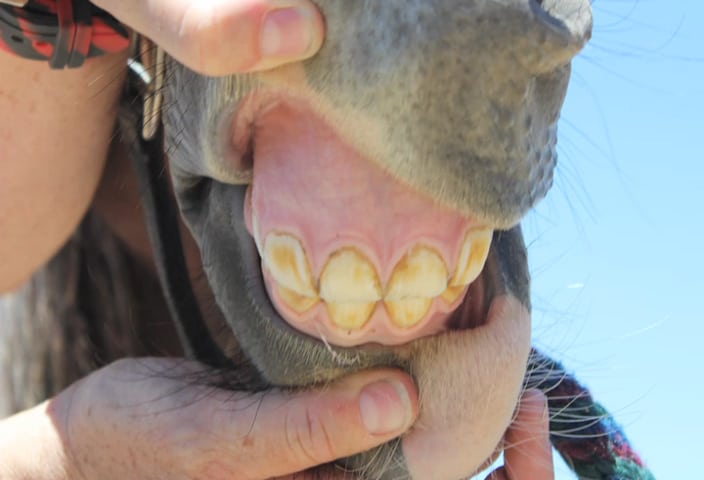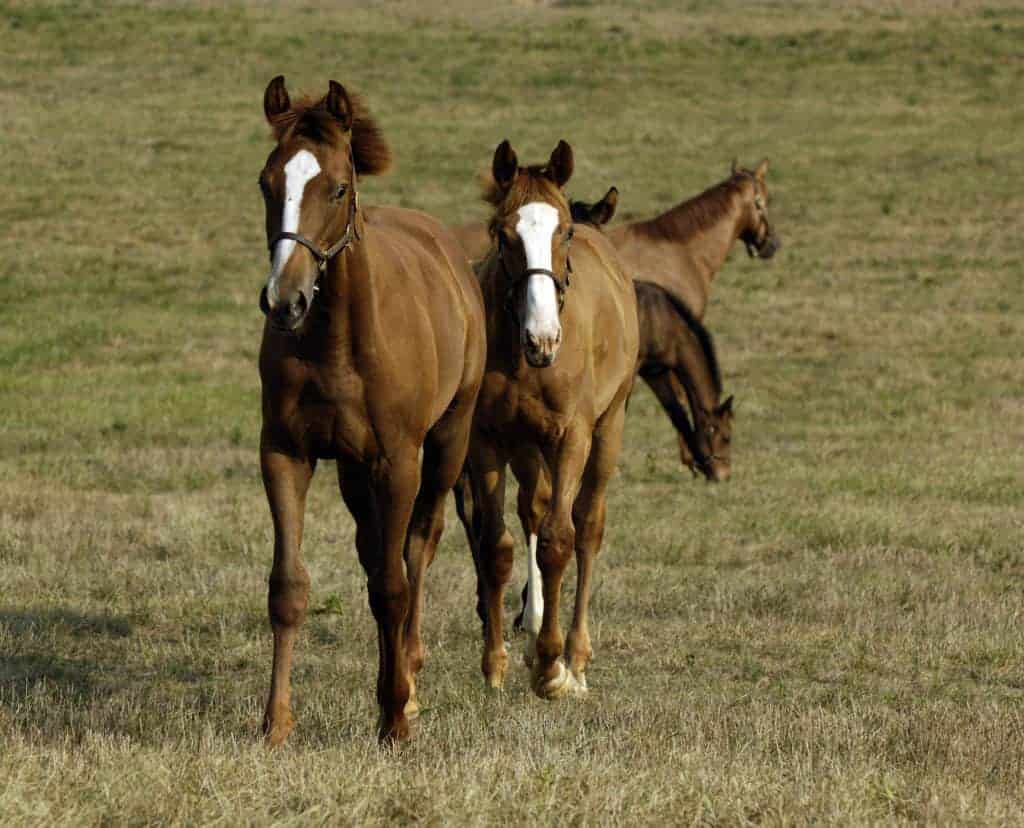
Restorative Dentistry in Horses
Advancements in equine restorative dentistry are giving owners options when faced with some dental disorders.

Advancements in equine restorative dentistry are giving owners options when faced with some dental disorders.

Horses’ teeth are very different from humans, and they need special dental care at least annually. Learn about routine dental exams, common dental problems, and routine equine dentistry procedures with Dr. Christy Corp-Minamiji.
Develop your senior horse’s diet with geriatric conditions and challenges in mind.

We’ll explore how the horse’s body systems age and what to look out for in your equine senior citizen.
Texas lawmakers have passed legislation that defines the role of nonveterinarian equine dentists in that state

How you manage, feed, and care for your young horse can affect his future performance.
My horse has an unusual problem. A dentist has worked on him, but he still drops his oats while trying to eat them. Now he is being fed pellets. I do not know if grazing is a problem for him, but he did drop in weight during the winter.
Mouth injuries can happen in any horse, whether during elite competition or in our own stables and pastures.
The term “wolf teeth” is a commonly used, but poorly understood, part of the horse owner’s vocabulary.
A group of veterinarians in Oklahoma are hoping a controversial advertisement will convince state legislators to kill a bill that would allow horse owners and their employees to buy and administer veterinary prescription sedatives used in teeth
A measure that allows individuals who aren’t licensed veterinarians to float horses’ teeth if they meet state certification requirements passed the Oklahoma Senate today (March 31). HB 3202 also amends the Oklahoma Veterinary Practice Act to allow…
There is controversy across the United States about the practice of equine dentistry by lay persons versus licensed veterinarians.

Dr. Jack Easley discusses equine dental anatomy and the importance of routine dental care.
A few years ago, a magazine article describing a minimally-invasive treatment for people with chronic sinusitis caught the eye and imagination of Chris Bell, DVM. What if such a treatment could be adapted for use in horses?
Last
“Oral ulcers and abrasions on the lips, cheeks, and tongue of horses are very common and are primarily caused by trauma,” Wattle said. “For example, nose bands pressing against the horse’s cheeks and badly fitting bits are both thought to be common
Advances in screw and plate technology are leading to improved clinical and aesthetic results in the treatment of even the most complicated jaw fractures, according to Swiss researchers.
By using the new locking compression plate (LCP)
Stay on top of the most recent Horse Health news with
"*" indicates required fields